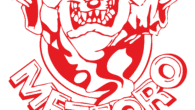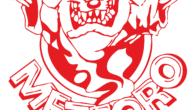Rosalía and the Musician’s Workshop
By Lluís Cabrera
Photo: ©Maud-Sophie Andrieux
During her years of study at the Taller de Músics, Rosalía entered and left the classroom like a whirlwind. Nuestra escuela del Raval has undergone a special and intricate growth since 1979, occupying several premises in the triangle that make up Requesens, Príncipe de Viana and Cendra streets, which results in the street being the school yard. This open environment fostered learning beyond the academic enclosure: Rosalía also absorbed knowledge interacting with artists, professors and colleagues in that peculiar courtyard.
The philosophy of Taller de Músics has always been eclecticism and flexibility, elements that have distinguished it since its foundation. This approach promotes musical practice in groups (combos), the mixing of genres and the creation of platforms for students to face the public. Rosalía fit perfectly into this pedagogical model, which prioritizes learning to speak before writing. From the JazzSí Club to the Teatre Grec, where she participated as a singer in a show inspired by Carmen Amaya, passing through the Palau de la Música with flamenkids or her intervention in the Ciutat Flamenco, Rosalía demonstrated a surprising artistic maturity for her age.
In January 2010, Rosalía enrolled for the first time in the Musicians’ Workshop in the Raval neighborhood. For two years, he studied piano, musical language, flamenco singing, jazz singing, vocal technique and guitar. Among his teachers were Jaume Gispert, Chiqui de la Línea, Errol Woiski, Diana Palau and Xevi García, who were witnesses to his tireless curiosity. After completing this stage, he continued his higher education in Can Fabra, in the District of Sant Andreu, between 2012 and 2014. There, he expanded his training in subjects such as music history, flamenco harmony, musical thought, flamenco forms and fundamentals of composition , with teachers such as Enric Marín, Alba Guerrero and Xavier Casellas.
Her participatory attitude led her to enroll not only in regular subjects, but also in seminars, workshops, lectures and conferences. Rosalía asked tirelessly, sometimes in an incisive way, showing an innate restlessness that challenged those around her. Asking questions, after all, is the key to expanding knowledge and building one’s own voice. That attitude is the one that the Workshop fosters in its students: that of observing, listening and doubting, because without questioning there is no evolution.
We understand that Rosalía was generating her artistic idea with humility, avoiding haughty postures and embracing simplicity. It is admirable how he knows how to learn from observation and listening, showing respect for the knowledge of others. This way of learning also enriches the center itself. As Enrique Morente said, “there are no teachers, there are disciples”, and Rosalía was an exemplary disciple who continually challenged us with her questions and reflections.
Rosalía’s impact on the Workshop was also felt in her generation. Her aura attracted many young people who admired her, but she was also looking for new areas and experiences that would expand her creative universe. He knew the codes of flamenco and the keys of jazz, but without being pigeonholed into a genre. That versatility reflects the essence of the Workshop: musical genres are medium, not fine.
Perhaps he could have achieved his career on his own, but the Workshop offered him an environment rich in ideas and a network of artists that boosted his development. One day, her teacher Chiqui de la Línea commented: “This girl is very special, she modulates in a way that, because she remembers the old ones so much, her expression is from now. Rosalía will talk a lot.” And he wasn’t wrong.
Rosalía has an angel, an angel fueled by her musical talent, tenacity, intuition, restlessness and an immense desire to learn. If we manage to transmit knowledge without limiting its creativity, we feel deeply proud, because it reflects the values that the Workshop has promoted during its 45-year history.
![]()






